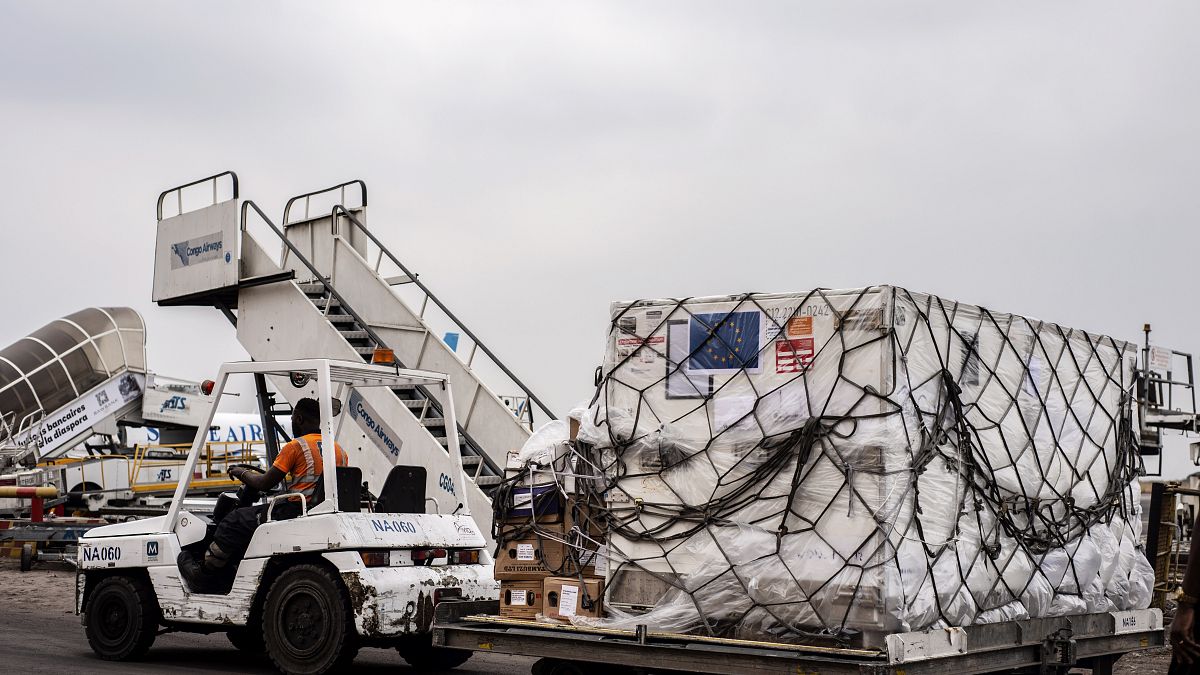The arrival of the first batch of 100,000 doses of the MVA-BN vaccine in the Democratic Republic of Congo is a crucial step in combating the recent mpox outbreaks in Africa. The vaccines have been donated by the European Union through HERA, the agency for health emergencies, as part of a larger effort to assist affected countries. Additional doses are expected to be delivered soon, with UNICEF taking charge of the vaccination campaign in the most impacted provinces. However, the total number of doses needed to fully address the mpox outbreaks in Congo is estimated to be much higher than what has been promised by Western partners.
Despite the rapid response from wealthy countries with vaccines and treatments from their stockpiles, only a small fraction of the necessary doses have reached African countries, where the majority of mpox cases and deaths are concentrated. The MVA-BN vaccine, which has been used in Europe and the United States, is now being administered in Africa to combat the outbreaks. While the vaccine is currently authorized for use in adults, efforts are being made to expand its use to children aged 12 to 17. The European Medicines Agency is examining additional data to facilitate this expansion, which could occur by the end of the month.
HERA, which pledged and purchased 215,000 doses of the MVA-BN vaccine specifically for donation to Congo, is playing a crucial role in addressing the mpox outbreaks in the region. The United States also contributed by donating 10,000 doses of mpox vaccines to Nigeria, the first known donation to Africa since the emergence of the current outbreaks. Nigeria, which has recorded 40 cases of the virus this year, is among the countries most affected by the spread of mpox. Despite efforts to contain the disease, mpox had been spreading largely unnoticed in Africa for years before the 2022 outbreak in multiple countries.
The urgency of the situation prompted the World Health Organization to declare mpox outbreaks in 12 African countries a global emergency, leading to an increased focus on finding solutions and providing assistance to affected regions. The arrival of the MVA-BN vaccine in Congo marks the beginning of a vaccination campaign in the most impacted provinces, with more doses expected to be delivered in the coming days. While the total number of doses needed to fully address the mpox outbreaks in Congo remains unclear, efforts are being made to mobilize resources and support from various organizations and countries to combat the disease effectively.
In the face of rising mpox cases and deaths in Africa, the response from global health authorities and partners is essential to containing the outbreaks and protecting vulnerable populations. The donation of vaccines and support from organizations like HERA and UNICEF are crucial in ensuring that affected countries have the resources needed to combat the disease effectively. As efforts continue to expand the use of the MVA-BN vaccine to children and increase the total number of doses available, there is hope that the mpox outbreaks in Africa can be contained and eventually brought under control. The collaboration between European and US partners, along with local health authorities in African countries, will be key in achieving this goal and preventing future outbreaks.











